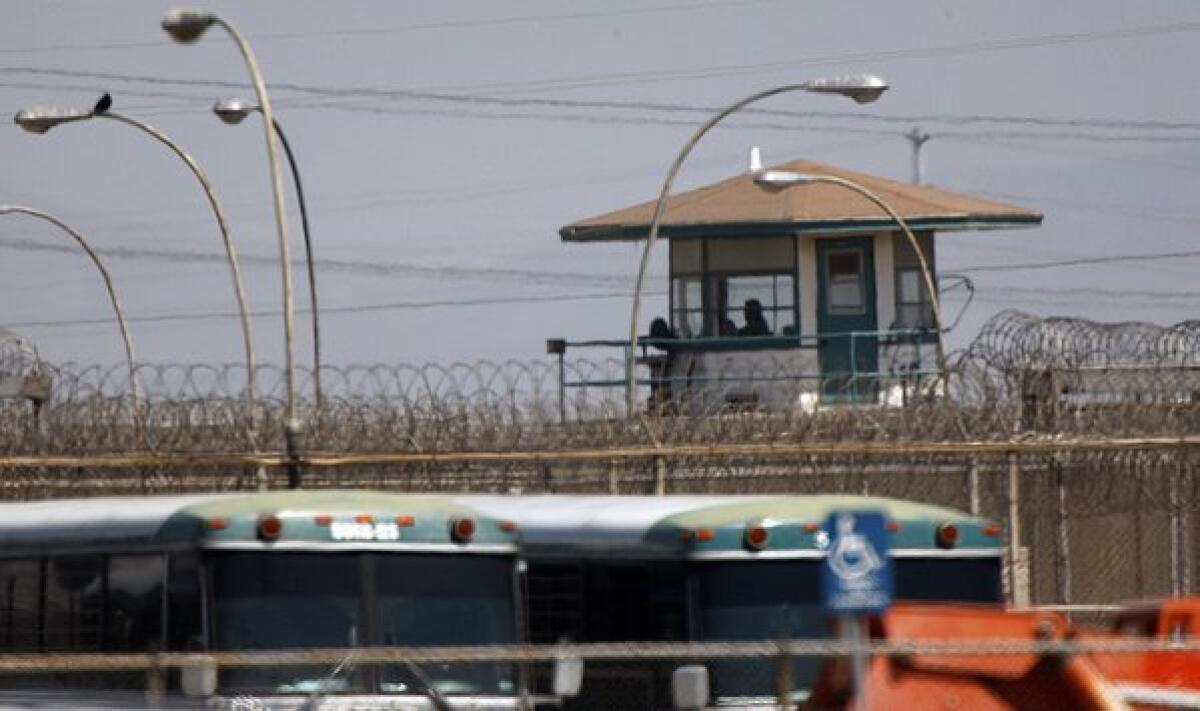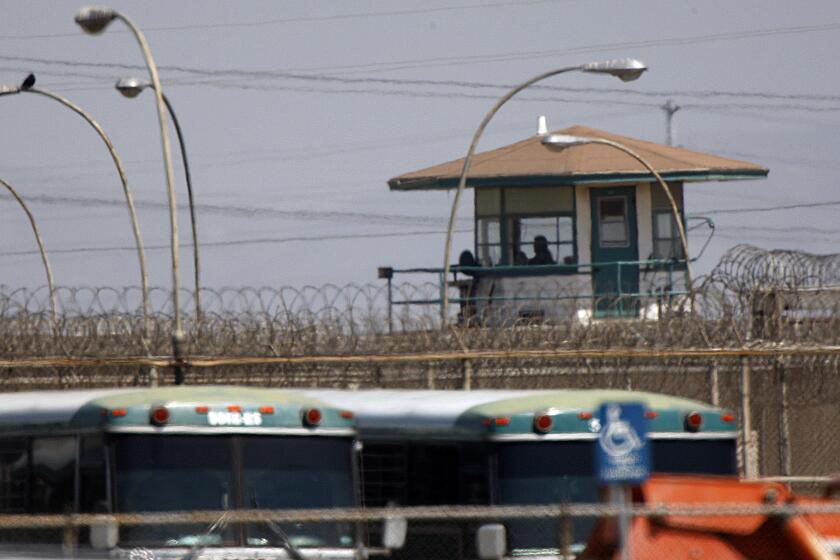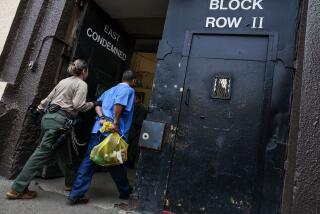12th inmate at Chino prison dies after testing positive for COVID-19

- Share via
A 12th inmate from the California Institution for Men in Chino has died after testing positive for the coronavirus as corrections officials contend with major outbreaks at three state prisons.
The death of the unidentified inmate Wednesday came after the California Department of Corrections and Rehabilitation transferred nearly 700 inmates considered vulnerable to the coronavirus because of their age or medical condition from the San Bernardino County facility to a dozen other prisons around the state, officials said.
The latest death occurred at a hospital near the prison, officials said. Officials said that two other inmates this week died from what appear to be complications related to COVID-19, the disease caused by the novel coronavirus.
About 672 inmates at the prison have tested positive for the coronavirus, with 447 of those still in custody.
At Chuckawalla Valley State Prison in Riverside County, 816 inmate have tested positive for COVID-19.
Avenal State Prison in Kings County has seen 599 inmates testing positive.
The outbreaks at Avenal, Chuckawalla, Chino, the California State Prison in Los Angeles County and the California Institution for Women in Corona account for 98% of the prison system’s confirmed cases of COVID-19.
Under a plan agreed upon by the California attorney general, corrections officials and the nonprofit Prison Law Office, 691 Chino inmates have been rehoused at 12 other state prisons, a reversal in department policy that normally forbids transfers.
California Correctional Health Care Services, which oversees medical care for prisoners, had previously opposed such transfers, saying that “mass movement of high-risk inmates between institutions without outbreaks is ill-advised and potentially dangerous” because of the risk of spreading transmission.
The Corrections Department has instituted daily screenings for all staff before entering prisons, which are increasingly becoming “powder kegs” in the spread of COVID-19.
All prison employees are required to wear cloth masks and have been ordered to maintain physical distancing as much as possible. The Chino and Avenal facilities have required that all workers be tested.
The state has also instituted strict cleaning protocols within the prisons, with logs documenting that showers, toilets and sinks are disinfected after use.
Being in a prison with a coronavirus outbreak is a death sentence, says an inmate with three prior heart attacks.
California’s prisons resumed processing inmates this week for the first time since Gov. Gavin Newsom suspended their intake from county jails in March. New inmates will be accepted from four counties: Los Angeles, San Bernardino, San Diego and Fresno.
“It is anticipated that no more than 200 inmates will be accepted from those counties through June 19,” the corrections department said.
Inmates will go to one of two intake centers — North Kern State Prison or Wasco State Prison. At each location they will be offered coronavirus testing. If they test positive, they’ll be isolated. Any inmate declining testing will be quarantined for 14 days.
Thousands of state prisoners — including about 3,500 who were nearing their discharge date — have been released as the state has sought to promote social distancing among inmates to stem the virus’ spread.
The pause in intakes from county jails further reduced the number of prisoners by about 6,000, according to statements made in recent federal court hearings.
However, courts have rejected moves by lawyers seeking more releases in a long-standing legal fight over overcrowding and medical treatment in California’s prisons.
At federal prisons in California, 1,800 inmates have tested positive for COVID-19 and 12 have died at two Lompoc facilities and San Pedro’s Terminal Island. The ACLU is suing to force the release of some federal inmates, citing health dangers.
More to Read
Sign up for Essential California
The most important California stories and recommendations in your inbox every morning.
You may occasionally receive promotional content from the Los Angeles Times.











